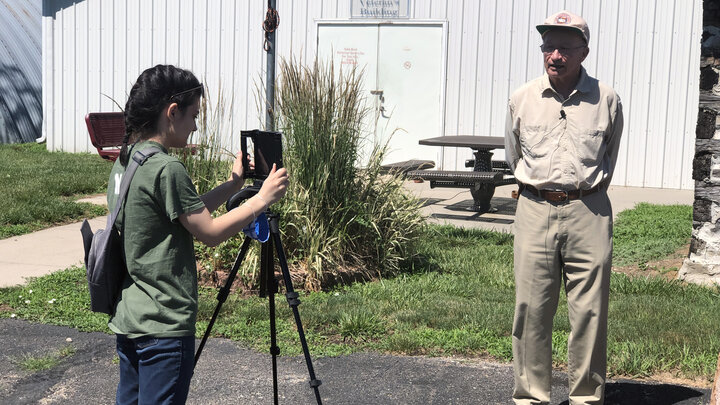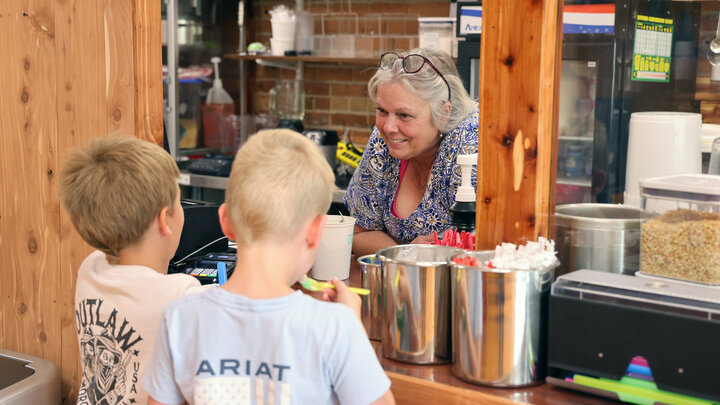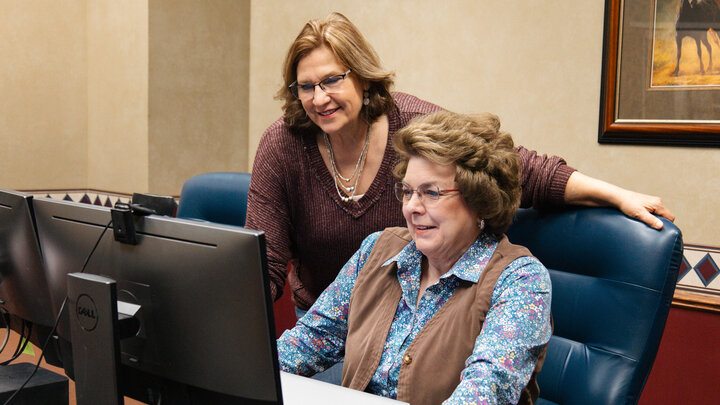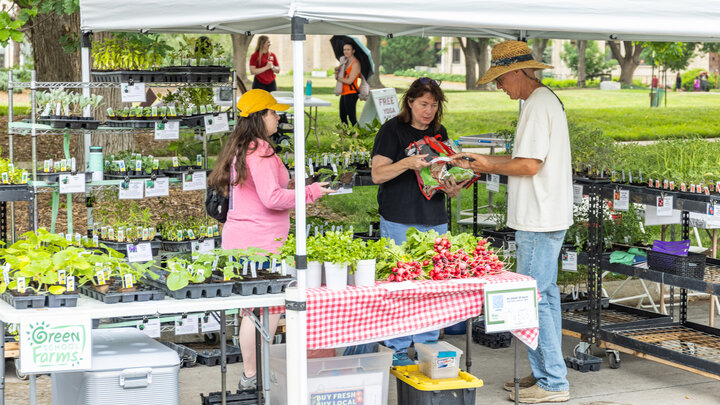Working in pairs or trios, 35 University of Nebraska–Lincoln students will take part in the Rural Fellowship program while living and working in 17 communities across the state this summer.
During their 10-week residence, the fellows will collaborate with local leaders on improving the communities. Project goals include strengthening the communities’ web presence, attracting entrepreneurs, and developing city parks and trails.
“Communities are getting the innovation and drive of new thinkers, problem-solvers and leaders,” said Helen Fagan, program coordinator since 2018. “This gives communities access to some of the latest research and knowledge that students, as well as faculty, have learned.”
For students, “this not only builds their confidence,” Fagan said, “but it also helps them connect what they have been learning in the classroom to addressing challenges.”
This real-world application appears in the form of various projects. Each community assesses its individual needs and aligns them with the education and experience of its fellows. In Ravenna, students Maria Harthoorn and Olivia Otte will create a new website and brochure to better market the city. In Valentine, students Connor Clanton and Victor Mpore will work on park improvements, including a new bandstand, zero-entry water area and renewed picnic area.
The ability for communities to complete these projects is due, in part, to partnerships the fellows program has made with state and university systems, Fagan said.
“We are partnering with Nebraska Extension and Rural Prosperity Nebraska educators in a way that we haven’t been able to accomplish in the past,” Fagan said.
Additionally, the fellows program has partnered with the Nebraska Community Foundation, which launched its own Hometown Interns program in 2020, offering Nebraska college students the opportunity to return to their hometowns for a summer of service learning.
“Ultimately, an enriching summer experience in their Nebraska communities could encourage young Nebraskans to return after college,” said Jeff Yost, president and CEO of the foundation.
Fagan added: “The future of this partnership is really exciting for Nebraska.”
The fellows program saw an increase of nearly 200% in student and community applications this year. Fagan attributes that increase to the program’s success last year, despite the COVID-19 pandemic.
“Last year, we were one of the very few programs that didn’t cancel,” she said. “We planned very carefully and successfully got students to communities to accomplish work. Students were thrilled to have the opportunity while many of their friends’ programs were canceled. And communities were ecstatic that students would be able to do some much-needed work.”
For many of the fellows, the summer program offers more than simply adding a line to their resumes. They walk away better understanding what “community” means to them.
“Rural communities are the backbone of our economy and where the American Dream continues to thrive, ” said Jacy Hafer, a fellow who will work in Chadron. “Spending time in a rural community allows you to be part of something bigger than yourself and find the family you didn’t know you needed.”
“The people who serve as Rural Fellows grow their leadership, communication and teamwork skills. I want to benefit from that, too,” said Benjamin Niyodusenga, a fellow who will work in Pierce County. “Having a background of what rural areas look like, I want to learn from rural Nebraska so that I can learn new things to export to my hometown in Rwanda.”
“I have seen some of the best of humanity during my involvement with the fellows program,” Fagan said. “I’ve seen students who had no intention of living in rural Nebraska decide to do so after the experience they have during their time as a Rural Fellow.”
This year’s fellows represent 21 majors, 22 communities, five states and four countries. They are listed below by the communities they will serve, with their major(s) and hometown.
- Arapahoe: Haley Burford, English, North Platte; Kennedy Kriewald, business administration, Scottsbluff.
- Chadron/Dawes County: Jacy Hafer, agricultural education, Long Pine; Hanna Jemison, psychology, Columbus; Chantelle Schulz, agricultural education, McCool Junction.
- Columbus: Madeline McGill, landscape architecture, Columbus.
- Custer County: Asama Al-Quwaitai, mechanical engineering, Al Suwaiq, Oman.
- Gothenburg: Ahmed Al Rawahi, mechanical engineering, Al Seeb, Oman; Laurent Ikuzwe, integrated science, Kigali, Rwanda.
- Imperial: Isaac Archuleta, business administration, Brainard; Joel G. Kreifels, criminology and criminal justice, Nebraska City; Sebastian Sturner, business administration, Chandler, Arizona.
- Lexington/Dawson County: Janet Kabatesi, integrated science, Kigali, Rwanda; Alicia Pannell, forensic science, Colorado Springs, Colorado; Tori Pedersen, agricultural education, Omaha.
- Macy/Omaha Tribe: Joy Ishimwe, integrated science, Kigali, Rwanda; Divine Mbabazi, integrated science, Kigali, Rwanda.
- Madison/Pierce County: Aline Rodrigues de Queiroz, biochemistry, Guarulhos, São Paulo, Brazil.
- Ord/Valley County: Kaylee Burnside, hospitality, restaurant and tourism management, Stapleton; Clare Umutoni, integrated science, Kigali, Rwanda.
- Pierce County: Brianna Gable, agricultural economics, Waverly; Benjamin Niyodusenga, integrated science, Kigali, Rwanda; Lillian Uwanjye, integrated science, Kigali, Rwanda.
- Ravenna: Maria Harthoorn, agricultural economics, Ainsworth; Olivia Otte, nutrition and health sciences, and agricultural production systems (dairy production), York.
- Schuyler: Lydia Behnk, business administration, Elgin; Megan A. Dorantes, political science, Kansas City, Kansas.
- Superior: Jeanne Itetere, integrated science, Kigali, Rwanda; Kendra Vaughn, mechanized systems management, Glenwood, Iowa.
- Thayer County: Lilia Torres, environmental science, Omaha; Esther Uwamahoro, integrated science, Kigali, Rwanda.
- Valentine: Connor Clanton, biochemistry, Lincoln; Victor Mpore, integrated science, Kigali, Rwanda.
- Wahoo: Mattee Kucera, nutrition and health sciences, Lawrence; Allison Metschke, agricultural engineering, Omaha.
Rural Prosperity Nebraska brings together extension professionals, faculty from across the University of Nebraska system and student fellows to work with community leaders to help make Nebraska’s rural communities more vibrant. It is housed within the University of Nebraska–Lincoln’s Institute of Agriculture and Natural Resources.
For more information, click here.




